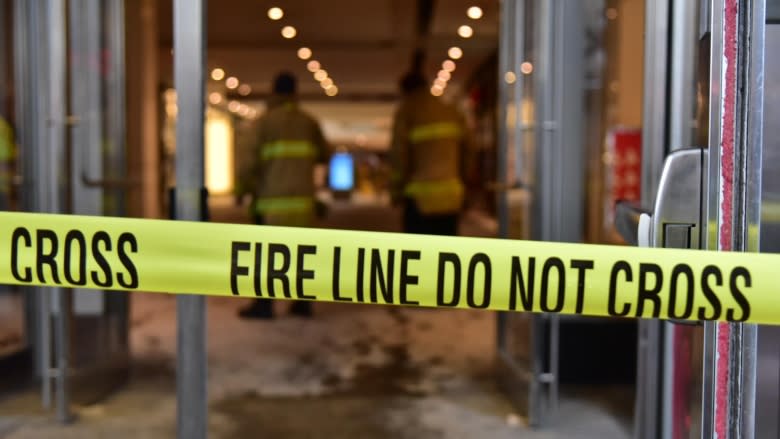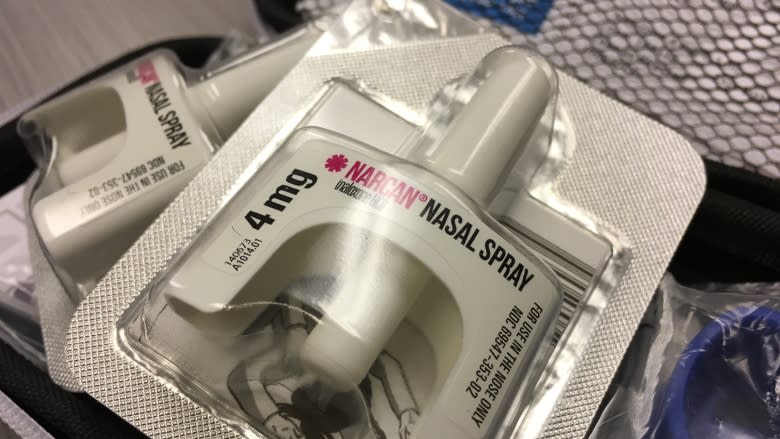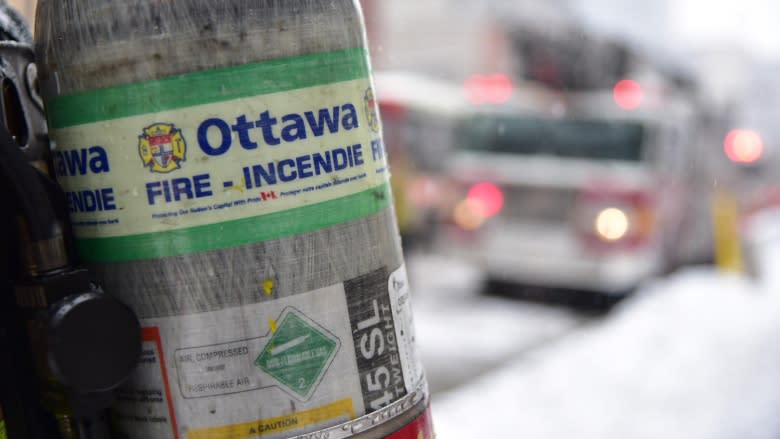'We're behind': Ottawa firefighters still without naloxone training
The president of the Ottawa Professional Firefighters Association says he was wrong when he predicted in March that firefighters would be in a position to use naloxone, a potentially life-saving antidote to fentanyl and other opioids, once a day.
Now, Peter Kennedy says that daily number should be much higher.
The number of overdoses in Ottawa seen a dramatic increase, with Ottawa Public Health reporting at least 28 cases since last Tuesday.
However, firefighters still haven't been trained on how to use naloxone.
"We've seen that spike over the past week," Kennedy said. "Unfortunately, there's been a real heightened sense of urgency and we're just behind.
"We're behind."
Ottawa Fire Services announced in March it would train 1,500 firefighters to use naloxone.
At the time, chief Gerry Pingitore said it would be a few weeks until firefighters would be ready to use the drug — nearly two months later, the service still hasn't hired qualified instructors.
'It's a little complex'
Pingitore said equipping firefighters with naloxone is not as easy as picking up a kit at a drug store or taking an hour-long training session from a community organization.
"The administration of naloxone is deemed a medical act for professionals, unlike the naloxone that's being handed out at pharmacies," he explained.
That's because when a civilian uses the kit, they're covered under the Good Samaritan Act, but when an emergency responder uses one they're liable as a medical practitioner.
"It's a little complex," Pingitore added.
Kennedy said firefighters understand that the training must be done a certain way because of the "liability issues," but firefighters still wonder why the process has taken this long.
Paramedics full partners, says chief
With Ottawa paramedics at times falling short of the number of ambulances needed to meet daily demands, the idea of firefighters taking on medical duties has been a politically charged issue.
Pingitore said Ottawa paramedics have fully supported the plan to train firefighters and worked hard to help create a training protocol which will go beyond showing firefighters how to use the naloxone nasal spray.
Licensed medical trainers will also ensure firefighters can determine when it's safe to use the spray and provide a refresher for medical first aid, including airway management, CPR and oxygen therapy.
The firefighters association still isn't fully convinced, with Kennedy questioning who is holding the process back.
"If [firefighters are] trying to roll out that training right now and it's not going forward," said Kennedy, "then, really, it begs the question: why not?"
Kennedy said the training would have started already if it was designed while administrators were waiting for materials to arrive — and if medically trained firefighters had been tapped to lead it.
'All they want to do is the right thing'
Once the trainers are hired, Pingitore said it will still take several weeks to train all 1,500 Ottawa firefighters, but platoons in high-risk areas will get priority.
In the meantime, he says he sympathizes with frustrated firefighters.
"I fully understand that some of our firefighters are becoming impatient. After all, all they want to do is the right thing," said Pingitore.





